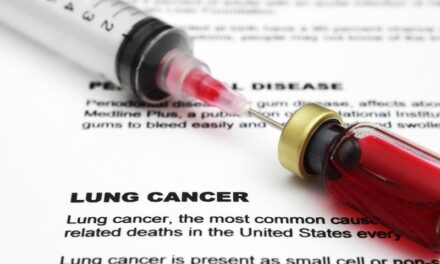By Bruce Gernaey
When nearly 1 million people depend on a hospital laboratory to provide fast and accurate test results to support their health care needs, dependability just can’t be compromised. So it was no small matter when 2 years ago, laboratory management at Citrus Valley Health Partners (CVHP) in Southern California’s San Gabriel Valley began to experience dependability problems with its chemistry analyzers.

CVHP’s network includes four medical facilities, 3,000 employees, and 700 physicians. As it performs more than 1 million reportable chemistry tests each year, CVHP needs highly dependable, fast, and standardized testing among its facilities. The two main campuses—Inter-Community, in Covina, and Queen of the Valley, in West Covina—handle most of the laboratory testing for the entire CVHP system. Just as important are the distinct testing requirements of each of CVHP’s various clinical specialties, including cancer services, cardiac care, diabetes, home health, hospice, maternity and wound care. In the maternity arena, for instance, the hospitals handle 400–600 births per month, and they have a 40-bed Level II neonatal intensive care unit for premature and other infants at risk. Parameters for clinical testing in this area include the necessity of working with ultrasmall-volume samples, the need for extremely rapid turnaround times, and the ability to do caffeine testing.
So, with the equipment contract up for renewal last year, laboratory management decided to acquire four new instruments—two for each of the Citrus Valley Medical Center’s main campuses to serve as their primary analyzers. The search team included Dewey Keel, administrative director of Laboratory Services; Kevin Forrestal, chemistry supervisor; and a number of the technologists who would be using the equipment on a daily basis. The team reviewed most of the major vendors before selecting the Olympus AU640e™ chemistry-immuno systems. The equipment, which was installed as their primary analyzers in each of the two main campuses of Citrus Valley Medical Center, went live on May 3, 2004.

According to Keel and Forrestal, the decision to go with the Olympus systems was based on several factors:
• Dependability—“This was one of the most important factors for us,” says Keel. The committee phoned 27 Olympus references. “Every user we spoke with told us that their analyzers demonstrated exceptional dependability.”
• Accuracy and precision—An examination of CAP survey results for the Olympus peer group revealed that the coefficients of variation and SDIs were all excellent. “This told us that these analyzers were both precise and accurate,” says Keel.
• Ease of service and operation—The team sought user feedback on each company’s hotline, repair services, tools, and component replacement to gauge operational ease of use and each company’s service and support performance. “When researching Olympus, we were very impressed by the feedback we heard about the company’s hotline and its excellent responsiveness,” says Forrestal. “But the operators were even more impressed by the fact that, unlike many of the competitors, the Olympus analyzers needed no tool kit. Components are very easy to replace by hand, without tools.”
• Test menu—The team reviewed each instrument’s ability to handle the number and variety of tests needed. “We already knew Olympus’ excellent track record for drug screening; and during our review, we learned that Olympus analyzers also had the most extensive test menu of any system on the market, including caffeine and other key assays for us,” says Keel.
• Southern California track record—Ideally, the instrument selected would already have an extensive regional track record. “We went forward because our team thought it was the best system, and our spreadsheet analysis confirmed that it was the right economic choice for us,” Keel says.
According to CVHP’s LIS Coordinator Sandy Cook, “Olympus and Medical Information Technology Inc did a great job of getting us up and running. They worked with each other incredibly well. The Olympus on-site service and support staff did so much to make the instruments go live in the shortest possible time. I can’t say enough about how great the Olympus people were,” Cook says.
The AU640e chemistry-immuno system is designed specifically to automate and consolidate chemistry-immuno testing in the demanding environments of mid- to large-size laboratories and hospitals like Citrus Valley. The 122-test menu, including general, STAT, and urine chemistries, serum proteins, special chemistries, and tests for therapeutic drug monitoring, drugs of abuse, and thyroid function, is standardized throughout the full model line of Olympus AU™ chemistry-immuno systems.
The results of the changeover have been excellent. “The AU640e systems are 50% faster than our prior systems. We complete our morning run earlier than ever before, and we can consistently meet our 8 am turnaround times ,” says Forrestal. “We can do with one system now what used to take two.”
“Most important, the AU640e systems have met and exceeded our expectations for dependability,” adds Keel. “And as for accuracy and precision, our data look excellent. Furthermore, we can do our neonatal testing off 50 mL volumes now; and the staff likes the universal racks, where we can drop in any tubes, no matter what the size or shape. All in all, we’ve been very happy with the AU640e.”
Bruce Gernaey is director of marketing, Olympus America Inc.



